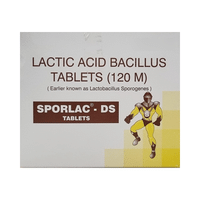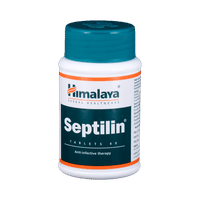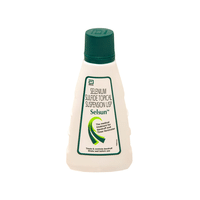Alcan 150mg/200mg Tablet

Rs.14.60for 1 strip(s) (1 Tablet each)
food interaction for Alcan
alcohol interaction for Alcan
pregnancy interaction for Alcan
lactation interaction for Alcan
food
alcohol
pregnancy
lactation
Alcan 150mg/200mg Tablet may be taken with or without food, but it is better to take it at a fixed time.
None
None
CAUTION
Caution is advised when consuming alcohol with Alcan 150mg/200mg Tablet. Please consult your doctor.
CAUTION
Information regarding the use of Alcan 150mg/200mg Tablet during pregnancy is not available. Please consult your doctor.
CONSULT YOUR DOCTOR
Information regarding the use of Alcan 150mg/200mg Tablet during breastfeeding is not available. Please consult your doctor.
CONSULT YOUR DOCTOR
SALT INFORMATION FOR Alcan
Fluconazole(150mg)
Uses
Fluconazole is used in the treatment of fungal infections.
How it works
Fluconazole is an antifungal medication. It kills and stops the growth of the fungi by destroying its cell membrane, thereby treating your skin infection.
Common side effects
Headache, Nausea, Rash, Vomiting, Diarrhea, Abdominal pain, Dizziness, Sleepiness, Taste change, Increased alanine aminotransferase, Increased aspartate aminotransferase, Dyspepsia, Agranulocytosis (deficiency of granulocytes in the blood), Anaphylactic reaction, Torsade de pointes, Acute generalized exanthematous pustulosis, Anemia (low number of red blood cells), Insomnia (difficulty in sleeping), Seizure, Paresthesia (tingling or pricking sensation), Vertigo, Liver failure, Hepatitis (viral infection of liver)
Cefixime(200mg)
Uses
Cefixime is used in the treatment of bacterial infections.
How it works
Cefixime is an antibiotic. It kills the bacteria by preventing them from forming the bacterial protective covering (cell wall) which is needed for them to survive.
Common side effects
Nausea, Diarrhea, Vomiting, Headache, Loose stools, Flatulence, Abdominal pain, Dyspepsia, Pseudomembranous colitis, Anaphylactic reaction, Abnormal liver function, Renal failure, Dizziness, Seizure, Blood cell abnormalities, Increased prothrombin time, Increased lactate dehydrogenase level in blood, Genital itching, Vaginal inflammation, Candidiasis, Toxic epidermal necrolysis, Increased bleeding tendency, Urine discoloration, Discoloration of stool, Body ache, Weight loss, Cough, Hoarseness of voice
SUBSTITUTES FOR Alcan
No substitutes foundExpert advice FOR Alcan
- Your doctor has prescribed Fluconazole to cure your infection and improve symptoms.
- Do not skip any doses and finish the full course of treatment even if you feel better.
- Use a reliable method of contraception to prevent pregnancy while taking this medicine.
- Your doctor may check your liver function before starting treatment and regularly thereafter. Inform your doctor if you notice yellowing of eyes or skin, dark urine, or stomach pain.
- Inform your doctor if you develop severe skin rash such as blistering of skin along with fever.
Frequently asked questions FOR Alcan
Fluconazole
Q. What is Fluconazole used for?
Fluconazole is an antifungal medicine. It is used for the treatment of many fungal infections like Cryptococcal meningitis (fungal infection in the brain) and Coccidioidomycosis (a disease of the lungs). Additionally, it is helpful in the treatment of infections caused by Candida found in the bloodstream, body organs (e.g., heart, lungs) or urinary tract, mucosal thrush (infection affecting the lining of the mouth, throat, and denture sore mouth), and genital thrush (infection of the vagina or penis). It can also be used to treat skin infections like athlete's foot, ringworm, jock itch, nail infection.
Q. Can Fluconazole be taken with oral contraceptives (OCPs) or birth control pills?
Fluconazole has been reported to have a minor interaction when taken with estradiol (a component of oral contraceptives). It can increase the level or effect of estradiol when given along with it. Before starting the treatment with Fluconazole inform your doctor if you are taking birth control pills.
Q. Can Fluconazole cause hair loss?
Fluconazole may cause hair loss as a rare side effect. If during the treatment you experience hair loss, inform your doctor.
Cefixime
Q. How long should I take Cefixime?
Cefixime is usually prescribed for 7-14 days. You should take it for the full duration of your treatment as advised by your doctor.
Q. What if I do not get better after using Cefixime?
Inform your doctor if you do not feel better even after finishing the full course of treatment. You must also inform your doctor if the symptoms get worse while using this medicine.
Q. Can the use of Cefixime cause diarrhea?
Yes, the use of Cefixime can cause diarrhea. Cefixime is an antibiotic which kills the harmful bacteria, but it can also affect the helpful bacteria in your stomach or intestine and cause diarrhea. If diarrhea persists, talk to your doctor about it.






















